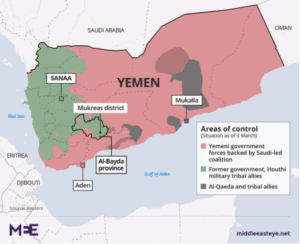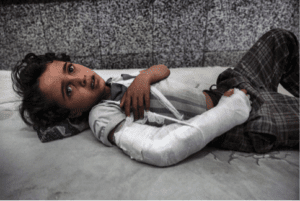Yemen’s cholera outbreak has deep roots in the country’s civil war; warring factions have destroyed sanitation infrastructure and blocked access to critical medical and humanitarian supplies. Cholera is an acute diarrheal infection caused by the ingestion of bacteria present in water and food contaminated with feces. Previous outbreaks in Haiti, Somalia, and the Democratic Republic of Congo demonstrated the rapid spread in areas with high population density and poor sanitation infrastructure. The disease is treatable with relatively inexpensive supplies, but the restrictions on movement and aid have encouraged cholera’s spread among displaced persons. As the outbreak surpasses 320,000 cases, the UN has been forced to cancel a critical vaccination campaign because of the difficulty in accessing affected areas. While cholera is not expected to spread to neighboring countries, the outbreak is anticipated to continue in Yemen and present a moderate risk to NGOs and security groups operating in the area.

The country’s civil war began in 2015 following a 2011 uprising which removed President Saleh. As part of a complex web of alliances, the Houthis and Saleh supporters in the northwest are fighting the Hadi government, which is backed by a Saudi-led coalition. Coalition airstrikes have targeted hospitals and residential areas and the Saudi navy has imposed a blockade on Hodeida, the main port serving Houthi territory. As a result, Houthi-held areas are most affected by the current outbreak, with smaller outbreaks in Hadi-controlled areas like Aden. In all, 86% (287/333) of Yemen districts are affected.
Though the WHO delivered supplies through Hodeida on July 2nd, a critical vaccination campaign was cancelled on July 11th because of logistical obstacles on-the-ground. Recent analysis of the outbreak suggested a plateau or decline in cases. Unfortunately, that decline disappeared as a backlog of cases was reported, and case counts soared above 300,000. VIGILINT anticipates that the outbreak will continue as public health campaigns are cancelled or handicapped.

Cholera presents the greatest risk to Yemeni citizens that lack access to clean food and water and have been displaced by the war’s destruction. Aid workers, security groups, and others traveling in the area are at a moderate risk of contracting cholera in Yemen. For clients in cholera-affected areas, VIGILINT recommends strict hand washing and food and water precautions, though we recommend travelers avoid areas experiencing cholera outbreaks when possible. We will update our clients as the outbreak progresses, particularly if the outbreak spreads into previously-unaffected areas or across borders.
